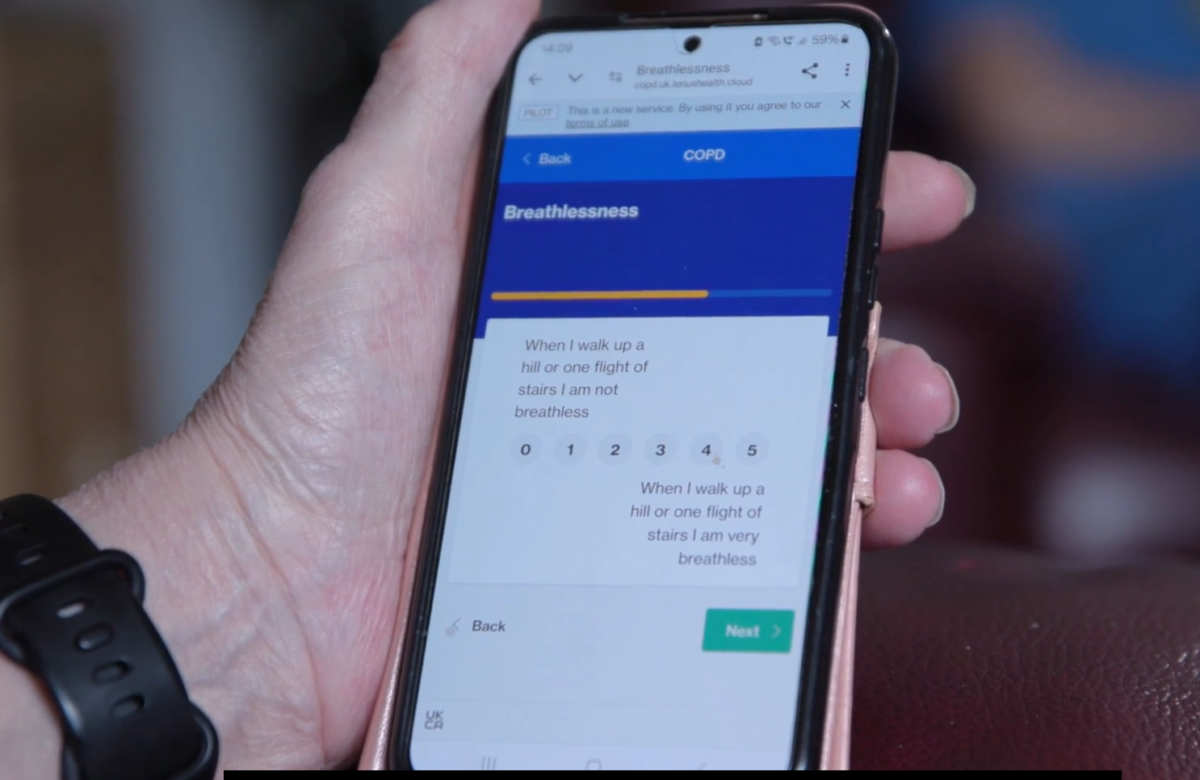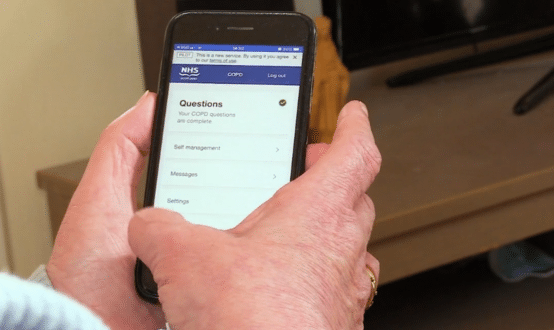TidalSense AI device improves accuracy of COPD diagnoses
- 21 June 2023

British health tech company TidalSense has published results from clinical studies which demonstrated more than 91 percent accuracy in diagnosing severe chronic obstructive pulmonary disease (COPD) from a single breath recording using its artificially intelligent (AI) device.
The studies involved first-of-its-kind AI-driven health technology in the form of the N-Tidal fast response capnometer handheld device. With the currently used spirometry test being only 64% accurate, the new device could revolutionise respiratory diagnosis.
Chris Carlin, consultant respiratory physician at NHS Greater Glasgow and Clyde, said: “This AI-driven health technology looks to have the ability to diagnose patients with COPD far quicker and more reliably than with standard spirometry testing…
“If N-Tidal’s diagnostic test could be introduced across the NHS, there’s a very real prospect of diagnosing patients with COPD sooner and starting optimised treatment earlier. This will reduce exacerbations, prevent deterioration in health and assist with the ambition to reorientate to preventative, rather than reactive care.”
Test based on four clinical studies
TidalSense worked with a team of researchers, which included academics from Portsmouth Hospitals University NHS Trust and the Nuffield Department of Primary Care Health Sciences at the University of Oxford.
The team examined data from four clinical studies between 2015-2022, which involved the collection of over 88,000 breath records from 295 patients.
The capnometer contains a sensor that measures carbon dioxide in the breath and transmits the ‘waveform’ to a secure cloud platform. This carbon dioxide data is then used to build and validate a diagnostic algorithm using machine learning.
The device is able to measure carbon dioxide more sensitively than previously possible, allowing for a high degree of accuracy.
TidalSense has designed the device to use normal, relaxed breathing for a single minute, making the process comfortable for patients. In addition, an updated version of the algorithm has now been integrated with the device. This means a healthcare professional is able to make a diagnosis within five minutes of the test being done.
A shortage of accredited staff means that waiting lists for spirometry tests can span several months and even years. The N-Tidal device can be administered by any healthcare professional, significantly speeding up diagnosis and enabling patients to access healthcare quickly to help slow the progression of the disease.
Dr Ameera Patel, CEO of TidalSense, said: “The current lack of accessible, accurate, and rapid diagnostic testing for COPD is contributing to a worsening of the current state of respiratory health.”
She continued: “Our research shows that the N-Tidal device, coupled with our AI technology, can accurately diagnose patients with COPD within minutes (compared to spirometry which takes 30 minutes an appointment), at the point of care, meaning that patients can access treatments quicker. This will inevitably result in better patient outcomes and reduced healthcare costs.”
TidalSense now intends to pilot the device in clinical settings – such as GP practices.
The news comes just a few months after we reported that Lenus Health has launched a study in partnership with NHS Greater Glasgow and Clyde to explore how insights from AI can improve care for people with COPD and prevent emergency hospital admissions for them.




